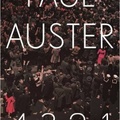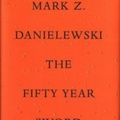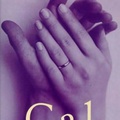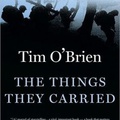David Nicholls: Starter for Ten
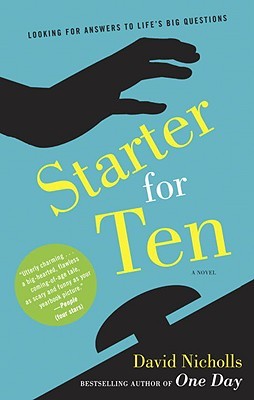 19-year old Brian – one-third idealist and two-third loser, but very likeable – can hardly wait to start his university studies. On the one hand, college provides him with a good chance to finally get away from home, from his over-caring mother and often less-than-friendlike friends; on the other hand – and this is something I can truly relate to – he’s got the idea that studying English literature (i.e.: reading, reading, reading) for the next couple of years is the best possible way to spend the time.
19-year old Brian – one-third idealist and two-third loser, but very likeable – can hardly wait to start his university studies. On the one hand, college provides him with a good chance to finally get away from home, from his over-caring mother and often less-than-friendlike friends; on the other hand – and this is something I can truly relate to – he’s got the idea that studying English literature (i.e.: reading, reading, reading) for the next couple of years is the best possible way to spend the time.
However, not only does he want to leave home and read – he also wants to be a little bit less of a loser. For instance, he wants to have a somewhat more manly and muscular body; he wants to have something of a social life; and – most importantly – he wants to captivate the heart of the beautiful Alice, a fellow student whom he has a crush on right from his very first day at uni. Naturally, Alice isn’t that easy to conquer since – as opposed to Brian – she happens to be a popular student, and she’s is fully aware of her attractivity. But perhaps there’s some slight chance for Brian to succeed in this seemingly hopeless mission: he does try hard, and both of them are members of the team preparing for this year’s university quiz, a popular television quiz show, so it’s inevitable that Brian and Alice get to know each other during the quiz practices.
The story spans through the first year of Brian’s university career, and it mostly revolves around the university quiz and Brian’s attempts to engage Alice’s attention. This year is basically a long series of major screw-ups, drunken nights and hungover days for Brian. Despite all this, Starter for Ten is by no means a brooding, bitter, overly melancholy teenage novel / coming-of-age story, since Brian possesses an amazing, sometimes lightly self-mocking, sometimes outright vulgar sense of humor, therefore even the most embarrassing situations (and there are a lot of these) are more funny than saddening. I don’t mean to say that Brian is a comical character – he’s merely an average, insecure young man on the brink of adulthood who happens to have enough sense of humor to be able to laugh at himself.
The story and the style are both witty and funny, and besides this, the novel offers an insight into the social and political situation in England in the 1980s. Just an example: the majority of Brian’s university acquaintances support a great selection of „good causes” and they are overtly anti-tory, while his friends from home who started to work right after high school tend to think that politics and the support of any kind of cause is just a snobbish, unworldly occupation. And of course the class differences – hardly ever missing from any English novel I know – are here as well: the majority of Brian’s screw-ups is the result of the fact that the boy – having come from a working-class background, and having grown up eating chips and canned food, and not in possession of any politeness or self-confidence – simply doesn’t know how he should behave with his new, upper-class university acquaintances who all come from expensive public schools, eat healthy, know all the elite drinks (while Brian only knows about beer) and in general, go about life in the most confident manner imaginable.
The youth (and university) culture of the era, and, in general, every topic usually attractive to young people are also very much part of this story. For instance, there are several funny trains of thought and conversations about the clothing and musical styles of the 80s (out of which there isn’t a single one Brian could truly like), about the cool and uncool bands and singers of the decade (Brian’s love for Kate Bush isn’t something a boy could be proud of in his university circles), or about the way the romanticism of 19th century English poets relates to the romanticism of a modern-age young man.
And all this together results in an entertaining, witty and smart novel – I greatly enjoyed reading it.

